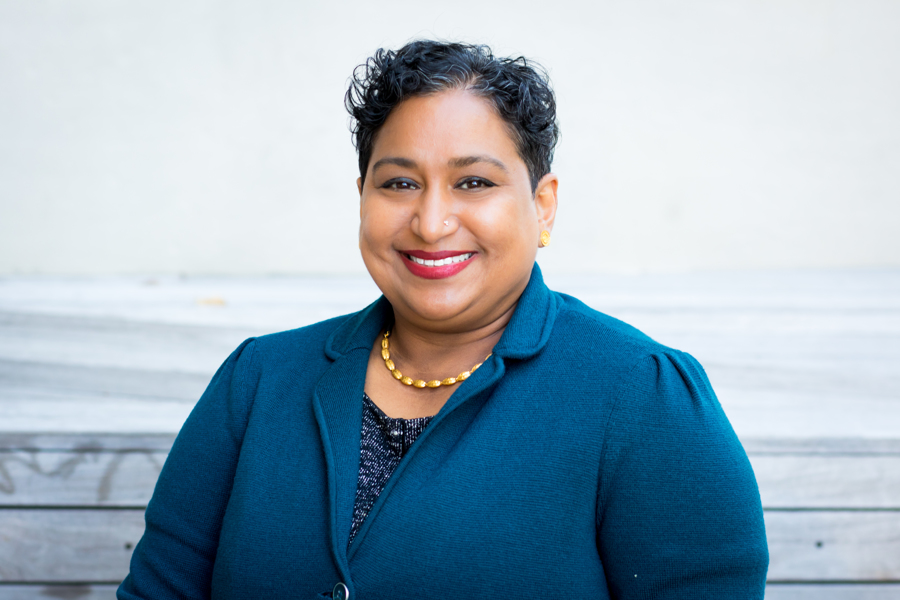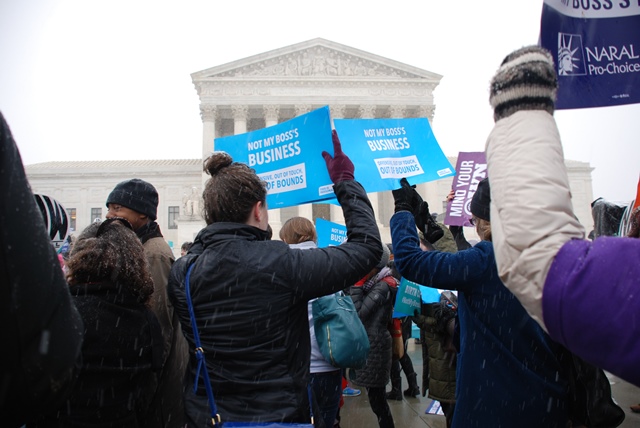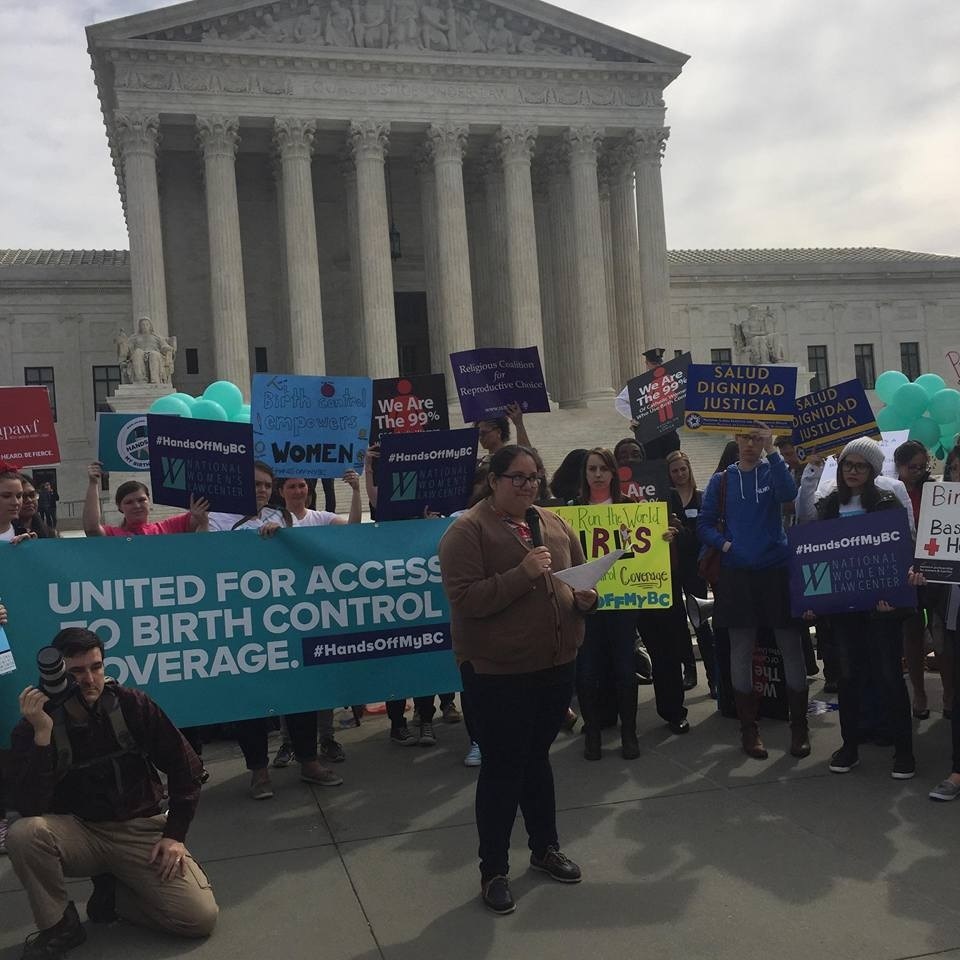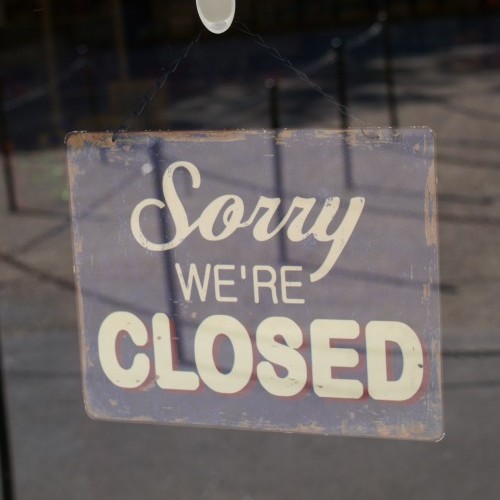Abortion rights, women of color, and LGBTQI+ people are under attack. Pledge to join us in fighting for gender justice.
Let’s Get Real: What the Masterpiece Cakeshop Decision Really Means
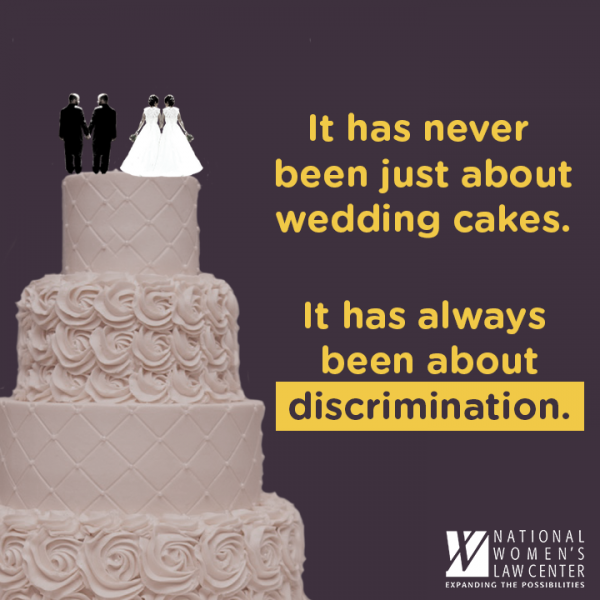 Today, the Supreme Court reaffirmed that states may continue to enforce anti-discrimination protections for LGBTQ people. So why are those who seek to discriminate against LGBTQ people celebrating this as a win? Let’s break it down.
Today, the Supreme Court reaffirmed that states may continue to enforce anti-discrimination protections for LGBTQ people. So why are those who seek to discriminate against LGBTQ people celebrating this as a win? Let’s break it down.
This case came to the Supreme Court by way of a Colorado bakery owner who, in 2012, refused to sell a wedding cake to a same-sex couple, and then claimed he was entitled to refuse because of his religious beliefs and free speech. In response, the same-sex couple, David and Charlie, filed a discrimination complaint with the Colorado Civil Rights Commission (“the Commission”). The Commission decided that the baker had violated the couple’s right to be free from discrimination under Colorado anti-discrimination laws, and the business owner responded by appealing to the Supreme Court. The majority of Supreme Court justices today ruled that when the Colorado Civil Rights Commission considered the case, it did so in a way that was not “neutral” to the bakery owner’s religious beliefs. Basically, the Supreme Court is saying that the baker didn’t get a fair shake at the Commission when it considered this case. For that reason, the Court reversed Colorado’s decisions and ruled narrowly on the side of the bakery owner that some of the Commissioners on the Colorado Civil Rights Commission did not consider his case fairly when it came to them
While of course we wish (real talk) that David and Charlie and all of us could have received a cleaner ruling that business owners may never turn away LGBTQ individuals without the reversal based on procedural issues stemming from the Colorado decisions, we are also heartened that the Court made a narrow, case-specific decision that does not permit discrimination, even by the Colorado bakery owner going forward. Indeed, the question of what would happen should this situation repeat itself today with the same players is still an open one. If LGBTQ individuals sought a wedding cake from the same bakery owner today, we imagine the Colorado Commission would review the matter anew and we hope, decide in the name of equality for all. We will say it one more time louder for the people in the back: businesses that are open to the public MAY NOT discriminate against individuals based on who they are. Today’s ruling did not change that longstanding legal principle.
So are we totally happy with this ruling? Not so much. But are we mourning it? Not so much. And here is why:
- The Court made it clear that even though Colorado’s decisions in this case were reversed, the law does not give business owners a blanket license to discriminate.
- The Court called protections against discrimination a “general rule” in our society, stating that “our society has come to the recognition that gay persons and gay couples cannot be treated as social outcasts or as inferior in dignity and worth.”
So, yes, we are disappointed that the Court found fault with the Colorado Commission’s handling of this matter but the bottom line is this: anti-discrimination laws today are just as strong as they were yesterday, and the Supreme Court has not given business owners permission to turn away individuals based on who we are or who we love.
As we argued in our amicus brief, antidiscrimination laws are enacted to prevent the precise type of discrimination that occurred in this case. It is critical that these laws remain strong, so that in all areas of life – housing, employment, healthcare, public accommodations and more – individuals do not have to risk the dehumanizing stigma, shame and tangible economic, mental and in some cases physical harm that comes with being refused a service. The Supreme Court did not disagree. In the wake of this ruling, we will all continue to advocate for robust federal and state anti-discrimination laws to strengthen much-needed protections for LGBTQ people and other protected classes.


